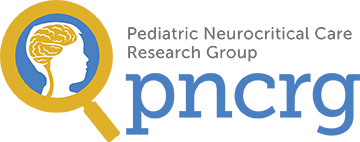Past
The GCS-Covid-Peds Study
The GCS-Covid-Peds is a multicenter, multinational cohort observational study to document prevalence and severity of neurological symptoms and outcomes among patients younger than 18 years old admitted to the hospital with confirmed or presumed COVID19.
Early reports of COVID-19 indicate that adults experience a variety of neurologic symptoms and diagnoses in up to 36% of patients. Of note, some patients without any respiratory symptoms had isolated neurologic symptoms of variable severity ranging from anosmia to encephalitis and stroke. Most commonly, adults with COVID-19 have neurologic symptoms prior to and/or during critical respiratory illness that range in severity from headaches, seizures, coma and cerebrovascular events. In children, experience with other viruses has shown delayed awareness of various short- and long-term neurologic complications after or during infection, including Guillain-Barre syndrome and influenza, encephalitis and H1N1 influenza, Acute Flaccid myelitis and enterovirus, microcephaly and Zika, to name a few. Data on neurologic manifestations and outcomes for children with COVID-19 are lacking. This study proposes to address this gap.
The Neurocritical Care Society (NCS) developed an international collaborative to study adult COVID-19 neurologic manifestations. This collaborative includes registered sites from more than 15 countries around the world, and partnerships with other professional organizations for harmonization of common data elements (CDEs) across initiatives. We partnered with NCS to add a pediatric arm upon which we can build a platform using their CDEs (modified for pediatrics as applicable) and adding our own CDEs for outcome assessment after hospital discharge. Accordingly, we divided the pediatric arm into two phases.
Phase 1 of this study collected data from a variety of sources such as the electronic medical record using an IRB-approved protocol with waiver of consent. Phase 2 of this study collected data under an IRB-approved protocol with consent for data sharing, outcome collection and/or parent interview.
Practice Recommendations for Transcranial Doppler Ultrosonography in Critically Ill Children in the Pediatric Intensive Care Unit
A Multidisciplinary Expert Consensus Statement
The PNCRG has established a subgroup on the use of Transcranial Doppler Ultrasound (TCD) in critically ill children. A recent survey of TCD practices in pediatric neurocritical care centers by this subgroup (Pediatr Crit Care Med 2020 21(1):67-74) found that TCD is in clinical use in 27 PNCC centers within PNCRG but only 30% had a written protocol. To improve consistency in TCD use in pediatric critical care, optimize safety and efficacy of this tool, and provide for meaningful and reproducible results in clinical care and research, the TCD subgroup has prepared a manuscript titled “Practice Recommendations for Transcranial Doppler Ultrasonography in the Pediatric Intensive Care Unit: a Multidisciplinary Expert Consensus Statement“, to be published in an upcoming issue of the Journal of Pediatric Intensive Care
A total of 34 consensus statements were developed across 4 domains through a 3 round modified Delphi process, using a panel from the PNCRG TCD subgroup. These statements cover performance standards, technical limitations, interpretation guidelines, documentation and reporting standards. A suggested TCD protocol and TCD reporting template from this consensus statement are linked below.
Suggested TCD Protocol
http://www.pncrg.org/wp-content/uploads/2020/06/Supplemental-Table-1.-Suggested-TCD-protocol.docx
Reporting Template for TCD in the PICU
http://www.pncrg.org/wp-content/uploads/2020/06/Figure-2.-TCDinPICUReportingTemplate.docx
